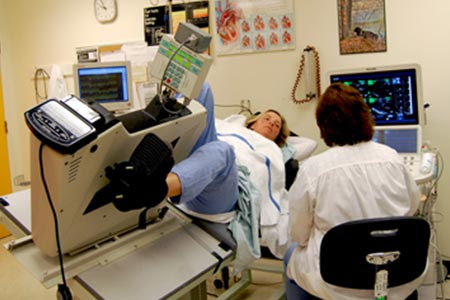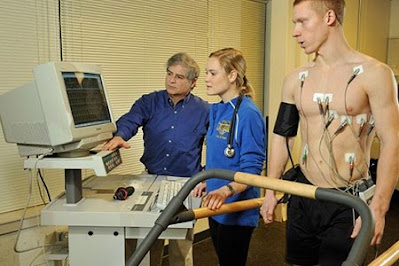Stress Echo Test Cost in Delhi Comprehensive Guide to Understanding the Procedure and Costs
Cardiovascular
health is a major concern for many individuals, especially those who are at
risk of heart disease or are experiencing symptoms such as chest pain, shortness
of breath, or abnormal heart rhythms. One of the most reliable diagnostic tools
used by cardiologists to assess heart health is the Stress Echo Test. If
you are located in Delhi and are considering this test, you may have several
questions, including the Stress
Echo test cost in Delhi, what the procedure entails, and why it's
recommended. In this comprehensive guide, we will explore everything you need
to know about the Stress Echo Test and its cost in Delhi.
What Is a Stress Echo Test?
A Stress Echo
Test (also known as a Stress Echocardiogram) is a non-invasive diagnostic
test that evaluates the heart's function and structure under stress. It
combines two main procedures: a traditional echocardiogram, which uses
sound waves to produce detailed images of the heart, and a stress test,
which monitors how the heart performs under physical activity or stress. The
purpose of this test is to identify any issues with blood flow, heart function,
or potential coronary artery disease that might not be visible during rest.
Why Is a Stress Echo Test Recommended?
A Stress Echo
Test is typically recommended for individuals who exhibit symptoms that may
indicate heart disease, including:
- Chest pain (angina)
- Shortness of breath
- Abnormal heart rhythms (arrhythmias)
- Unexplained fatigue
- A
family history of heart disease
It is also used to
assess individuals who are at high risk for heart disease, to monitor existing
heart conditions, or to evaluate how well the heart is functioning after a
heart attack or heart surgery.
The test provides
valuable information about how the heart responds to physical activity, which
can help doctors make accurate diagnoses and create personalized treatment
plans for heart conditions.
The Procedure: How Is a Stress Echo Test Performed?
The Stress Echo
Test is typically performed in two stages:
1. Resting
Echocardiogram: The first step involves an initial echocardiogram at rest, where gel
is applied to your chest, and a transducer (a handheld device) is moved over
your skin to capture ultrasound images of the heart. The images provide an
overview of the heart’s structure, size, and how well it’s pumping blood.
2. Stress Test: After the initial
resting echocardiogram, you will be asked to exercise on a treadmill or
stationary bike. The exercise gradually increases in intensity to raise your
heart rate, mimicking the physical stress the heart would experience during
normal activities. While you're exercising, your doctor will monitor your heart
rate, blood pressure, and symptoms.
For patients unable
to exercise on a treadmill, a pharmacological stress test may be used,
where medications are administered to simulate the effect of exercise on the
heart.
3.
Post-Exercise Echocardiogram: After you reach
the target heart rate, the stress test phase ends, and a second echocardiogram
is performed to evaluate how the heart is functioning under stress. The images
taken during this phase help identify any abnormal changes in the heart’s
function during physical exertion, such as reduced blood flow or damage to
heart tissue.
What Are the Benefits of a Stress Echo Test?
The Stress Echo
Test offers several benefits in diagnosing heart problems, including:
- Non-Invasive: The test is non-invasive, meaning there are
no cuts or incisions involved.
- Accurate Diagnosis: It provides valuable
insight into heart function and can detect coronary artery disease, heart
valve problems, and other heart-related conditions.
- Real-Time Results: The test produces
immediate results, which can be analyzed by your cardiologist during the
procedure to determine the next steps in your treatment.
- Customization: The stress test component allows doctors to evaluate the heart
under stress, which may reveal problems that aren’t present when the heart
is at rest.
Factors Affecting the Stress Echo Test Cost in Delhi
The Stress Echo
Test cost in Delhi can vary based on several factors. Here are the primary
factors that influence the overall cost:
1. Location: The cost of
healthcare services can vary depending on the location within the city. Premium
hospitals and diagnostic centers in affluent areas may charge higher fees
compared to those in other parts of the city.
2. Hospital or Clinic: The type of
facility you choose will impact the cost. Large, well-established hospitals and
specialized heart centers generally charge higher prices due to their advanced
equipment, experienced doctors, and higher service standards.
3. Technology Used: The quality of
the echocardiogram equipment and the type of stress test conducted (exercise
vs. pharmacological stress) can also influence the cost. State-of-the-art
equipment or additional diagnostic features may increase the price.
4. Doctor's Expertise: Cardiologists
with extensive experience in conducting and interpreting stress echo tests may charge
more for their services. Specialized doctors with high qualifications and
expertise can add to the overall cost.
5. Additional Tests: In some cases,
additional diagnostic tests may be required before or after the Stress Echo
Test, such as blood tests, X-rays, or MRIs, which can add to the total
cost.
Stress Echo Test Cost in Delhi
The cost of a Stress
Echo Test in Delhi typically ranges from INR 4,000 to INR 15,000 or more.
However, the exact price can fluctuate depending on the factors mentioned
earlier.
- Basic Stress Echo Test: The cost for a standard
Stress Echo Test may range between INR 4,000 and INR 7,000. This test usually
includes the echocardiogram at rest, stress testing on the treadmill, and
a post-exercise echocardiogram.
- Advanced Stress Echo Test: If you opt for a more comprehensive test
with advanced imaging technology or a pharmacological stress test (for those
who cannot exercise), the cost may go up to INR 10,000 to INR 15,000 or
more.
Insurance Coverage for Stress Echo Test
Many health
insurance plans provide coverage for diagnostic tests such as the Stress
Echo Test, particularly when it is ordered by a doctor for medical reasons.
However, insurance coverage may depend on your policy and whether the test is
deemed medically necessary.
It’s important to
confirm with your insurance provider whether the Stress Echo Test is
covered under your plan and if there are any specific requirements or
procedures to follow before seeking reimbursement.
How to Prepare for a Stress Echo Test
Before undergoing a
Stress Echo Test, there are a few important steps you can take to
prepare:
- Consultation: Speak with your doctor to discuss any
medical conditions or concerns you may have, such as asthma, recent
surgeries, or heart conditions.
- Clothing: Wear comfortable clothes and shoes, as you
will be required to walk or exercise on a treadmill during the test.
- Medication: Inform your doctor about any medications you
are currently taking, as some drugs may need to be temporarily adjusted
before the test.
- Fasting:
You may be asked to fast for a few hours before the test, depending on the
specific requirements of your doctor.
Conclusion
The Stress Echo
Test is a valuable diagnostic tool for assessing heart health and
identifying underlying issues that might not be visible at rest. In Delhi,
the cost of a Stress Echo Test typically ranges between INR 4,000 and
INR 15,000, depending on factors such as the hospital, equipment used, and the
expertise of the cardiologist.
If you’re
considering a Stress
Echo Test in Delhi, it’s essential to consult with your healthcare
provider to determine whether this test is appropriate for your condition and
to get a clear understanding of the costs involved. With the right preparation
and understanding, you can undergo the procedure confidently and take the next
steps toward better heart health.




Comments
Post a Comment